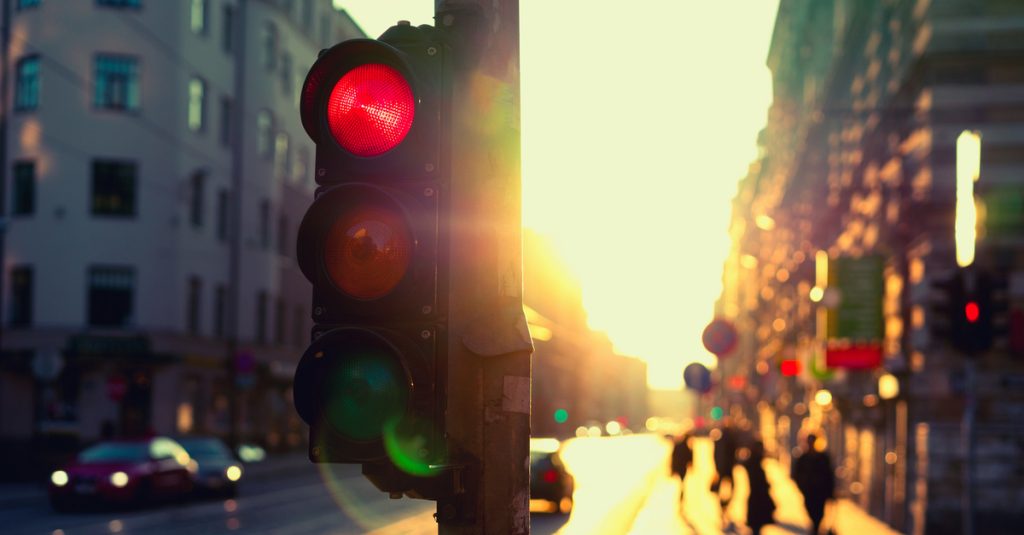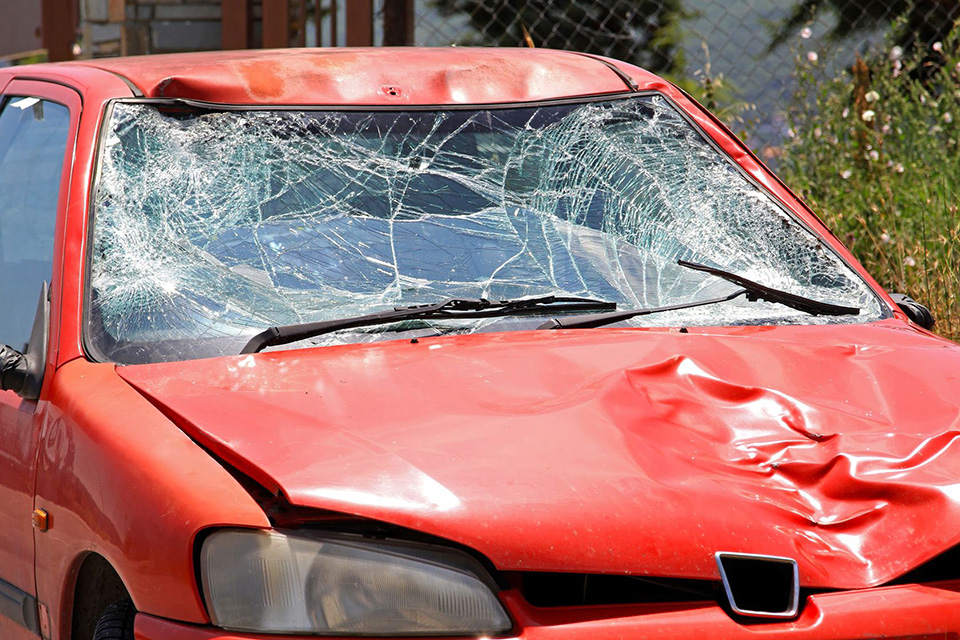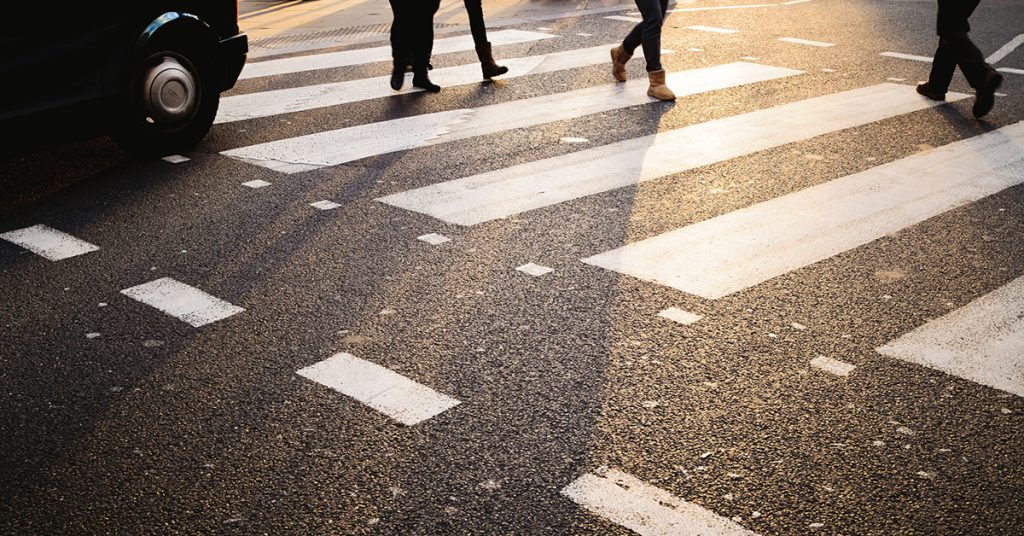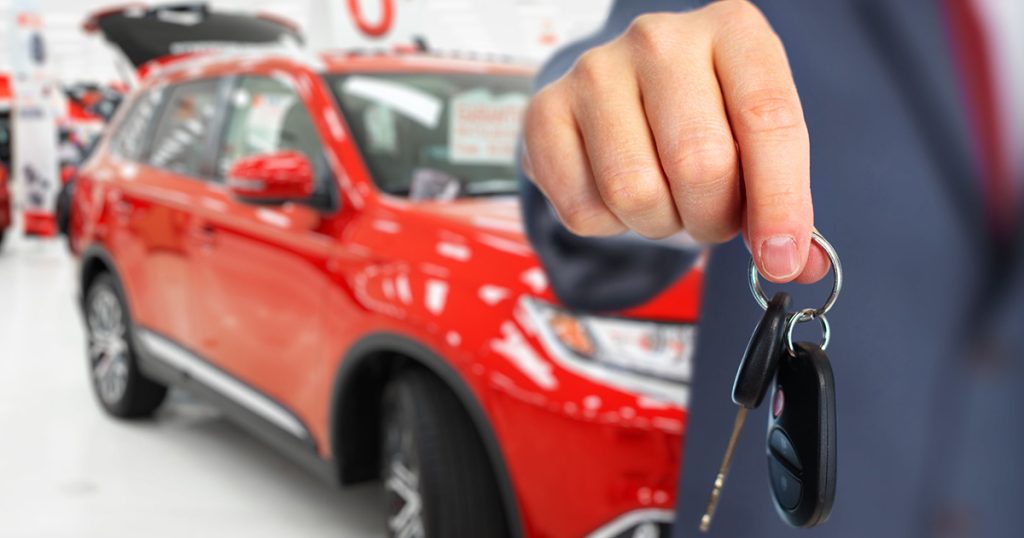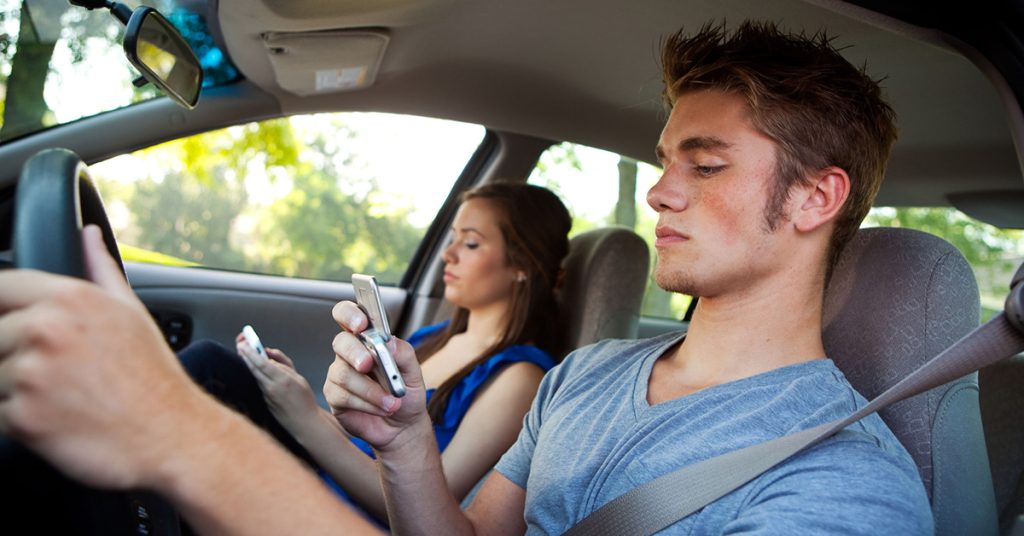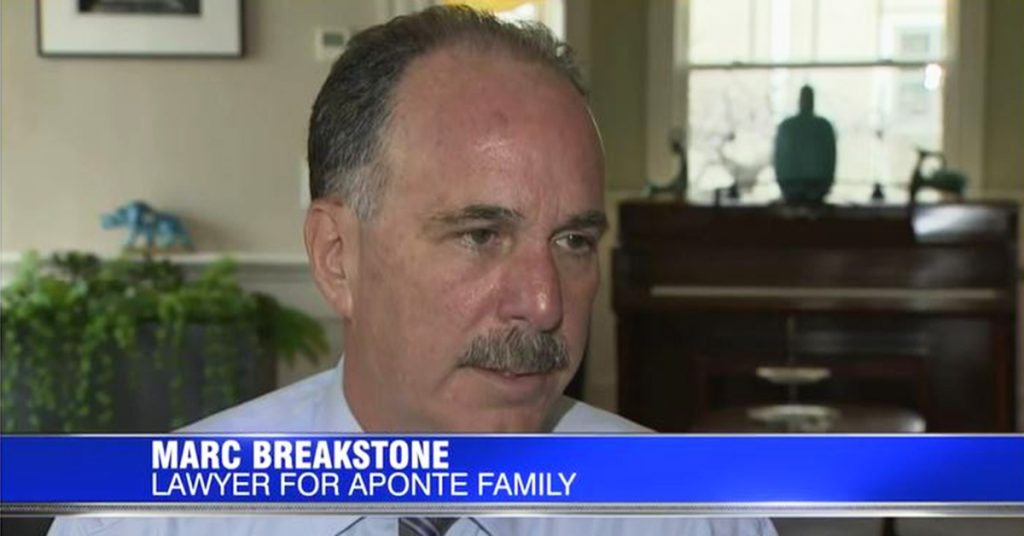Car Accidents
Drivers Running Red Lights Causing Record Number of Car Accidents in Massachusetts, Across the U.S

Drivers who run red lights are causing a record number of deaths in Massachusetts and across the U.S., according to a new study.
While red means stop, we have all seen cars speed on, especially if you live in Boston. Our attorneys have represented countless clients who have been seriously injured or killed by another driver’s recklessness at intersections. Now, a new study reports running a red light is causing a record number of traffic fatalities across the United States. From AAA’s Foundation for Traffic Safety:
- Red light running crashes have reached a 10-year high in the U.S.
- 939 people were killed when drivers sped through red lights in 2017, a 28 percent increase over 2012.
- More than a quarter of all intersection accidents happen because drivers run red lights.
- Nearly half of those injured in red light crashes were passengers or occupants of other vehicles. Pedestrians and cyclists accounted for more than 5 percent of fatalities.
- Over 35 percent of traffic deaths were red light running drivers themselves.
- 85 percent of drivers consider it very dangerous to run a red light, yet one in three reported speeding through one in the past 30 days, according to AAA Foundation’s Traffic Safety Culture Index.
- On the same note, nearly half (more than 2 out of 5 drivers) found it unlikely that they would ever be stopped by law enforcement.
- Despite these responses, running a red light can have serious consequences, resulting in a possible insurance surcharge or criminal charges.
AAA officials count Americans driving more and distracted driving as two causes. Meanwhile, the Federal Highway Administration reports more than 50 percent of fatal and injury crashes in the U.S. happen at or near an intersection.
Massachusetts Red Light Accidents
Red light crashes are a danger at Massachusetts intersections. From 2008 to 2017, Massachusetts lost 43 people when drivers ran red lights, according to Wicked Local. These deaths are just the drivers who were caught and are in addition to other injuries.
Safety Recommendations: Roundabouts and Traffic Cameras
AAA officials say roundabouts and traffic cameras could reduce the number of crashes. Massachusetts is actively working to convert rotaries into roundabouts, which are considered safer because they force drivers into the correct lanes. However, with more than 100 rotaries across Massachusetts, change will take time.
There is long-standing opposition to traffic cameras at Massachusetts intersections, even as AAA says traffic cameras have reduced fatal red light running crashes by 21 percent in large cities. Overall, traffic cameras have contributed to a 14 percent reduction in all fatal crashes at signalized intersections.
Unlike some states, Massachusetts does not have a state law permitting use on local intersections. While MassDOT operates traffic cameras along the MassPike, there is a battle over local intersections.
More than a decade ago, several Massachusetts communities attempted to pass ordinances allowing for red light cameras, among them Saugus, Lawrence and Springfield. South of Boston, Brockton also approved a local traffic camera ordinance. Traffic cameras were never installed. Citing privacy concerns, state lawmakers declined to pass the legislation necessary for these local ordinances to stand. Now years later, there are state lawmakers interested in similar legislation, so we may be revisiting the debate at some point. Here is one lawmaker’s blog.
Across state lines, you may find traffic cameras at red lights in Rhode Island, along with 19 other states. Rhode Island, however, does not have a state authorizing the use of speed cameras (Source: Governors Highway Safety Association).
AAA only recommends traffic cameras at intersections with demonstrated patterns of red light violations or high crash rates. Cameras should be part of broader traffic safety programs and drivers should be notified through signage and other methods.
Reducing Red Light Accidents in Massachusetts
Drivers have a responsibility to operate with care and pass other vehicles, cyclists and pedestrians at a safe distance in Boston and every other community in Massachusetts.
The Boston area commute is stressful. Leaving your home a few minutes earlier was once an effective way to beat the traffic. Unfortunately, as traffic congestion has grown, you now have to leave even earlier in many Massachusetts communities and that isn’t always enough to beat the 2-3 hour commutes. But even in these conditions, practicing patience and putting down your cell phone are paramount to preventing red light crashes and distracted driving accidents causing injury or death. Always watch for pedestrians and cyclists, maintaining a safe distance at all times and taking extra care when approaching crosswalks and bike lanes. Remember you may not be able to see a pedestrian until that moment they step onto the road.
Free Legal Consultation – Boston Car Accident Lawyers
Breakstone, White & Gluck has been recognized for our superior results for clients. Founded in 1992, our law firm specializes in representing those who have been injured due to the negligence and wrongdoing of others. We specialize in handling cases involving car accidents and truck crashes in Boston, Cambridge, Cape Cod, the South Shore, the North Shore and across Massachusetts. If you have been injured, learn your rights. Contact our firm for a free legal consultation: 800-379-1244 or 617-723-7676 or use our contact form.
Finding the Top 50 Car Crash Locations on Cape Cod
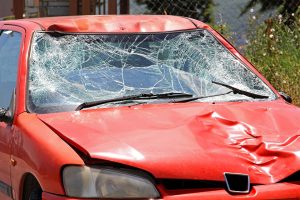 If you regularly travel to Cape Cod, you know to expect traffic slowdowns and use caution near the Bourne and Sagamore bridges. Now, a new report sheds light on just how many accidents really happen at Cape Cod rotaries and intersections.
If you regularly travel to Cape Cod, you know to expect traffic slowdowns and use caution near the Bourne and Sagamore bridges. Now, a new report sheds light on just how many accidents really happen at Cape Cod rotaries and intersections.
The Cape Cod Commission released its, “Barnstable County High Crash Locations,” report last month. The report identifies 50 of the most dangerous intersections and several other rankings. These rankings were developed through analysis of 2012-2016 traffic data from the Massachusetts Department of Transportation (MassDOT) and local police departments. The commission collected data on the number of crashes and Equivalent Property Damage Only (EPDO) accidents. Traffic data typically counts EPDO accidents, along with car accidents resulting in injury or death, to provide more context on traffic conditions.
This report confirms that many Cape Cod car accidents are happening on the rotaries in Bourne and Buzzards Bay. Many are also happening on the mid-Cape, in Barnstable, Dennis and Yarmouth. But the report provides insight on just where motor vehicle accidents are happening and how close these accidents are happening to your home, your work, your vacation rental or where you take your daily walk. In some cases, you may want to change which highway exits you use.
If you read the report, you will see there is already good news in some cases; the state and local towns have already implemented improvements to antiquated roads or are planning updates.
But you should also take away the point that it’s important to travel slowly on Cape Cod. This is a special region with beautiful beaches, where residents, vacationers and workers converge each summer from different experiences. As a driver, you have a responsibility to use reasonable care and you give yourself more options by slowing down and putting down your cell phone. Recognize that during the summer season, a safe speed will likely fall below the posted speed limit. Ultimately, your goal is to give other drivers, along with cyclists and pedestrians, adequate room if they need to move over, turn or respond to traffic conditions.
In addition, distracted driving and drunk driving accidents cause many injuries on Cape Cod. Make good decisions. If you drink, stay home or use a designated driver system.
Cape Cod Rotaries with the Most Traffic Crashes
Among rotaries and circular intersections, the Bourne Rotary at Route 28, Sandwich Road and Trowbridge Road saw the highest number of crashes. 445 car crashes were reported over the 5-year period. Safety improvements were completed in 2015. The Mashpee Rotary (at Route 28, Route 151 and Great Neck Road) had the second highest number of Cape Cod crashes.
Two other major intersections in Bourne came in third and fourth, the Otis Rotary at Route 28, Connery Avenue and Lake Drive, and the Belmont Rotary in Bourne at Route 28, Main Street and the Buzzards Bay Bypass. There were 257 Barnstable car crashes in Hyannis, at the Barnstable Airport rotary along Route 28.
Other Top Crash Intersections on Cape Cod Intersections
1) Top Dennis Car Crash Intersection
Route 134 (East-West Dennis Road) at Patriot Square/Market Place
170 crashes and 254 EPDO accidents
2) Top Barnstable Car Accident Intersection
Route 28 (Falmouth Road) and Bearses Way
153 crashes and 285 EPDO accidents
3) Second Highest Traffic Crash Location in Barnstable
Route 28 (Iyannough Road) at Yarmouth Road
136 crashes and 260 EPDO accidents
4) Top Yarmouth Car Accident Location
Route 28 at Old Main Street/North Main Street
106 crashes, 212 EPDO accidents
5) Dennis Traffic Crash Location with Second Highest Number of Crashes
Route 134 (East-West Dennis Road ( at Upper County Road)
Top Crash Locations Along Route 6
1) Dennis, Exit 9A/9B on Route 6 at Route 134
2) Bourne, Exit 1A Route 6 (Pilgrims Highway) at Scenic Highway
3) Barnstable, Exit 6, Route 6 at Route 132, departing toward Barnstable Municipal Airport, the Cape Cod Mall and the Steamship Authority
4) Yarmouth, Exit 7 Route 6 at Willow Street
5) Harwich, Exit 10 at Route 6 at Pleasant Lake Avenue
Where Fatal Car Crashes Happen on Cape Cod
From 2012-2016, there were 86 fatal crashes on Cape Cod, according to the report. Three communities recorded just about half of these deaths.
Barnstable, which includes Hyannis, Marston Mills and other villages, recorded 19 deaths. There were 13 deaths in Yarmouth car accidents. Meanwhile, Falmouth saw 12 traffic fatalities.
Where Cyclists and Pedestrians are Vulnerable on Cape Cod
- Along Route 28 in downtown Falmouth, Hyannis, Yarmouth, Chatham and Orleans
- Buzzards Bay in Bourne
- Station Avenue in Yarmouth and Route 134 in Dennis
- Downtown Orleans
- Commercial Street in Provincetown
The commission also noted that bicycle accidents and pedestrian accidents often go unreported. This may happen when a cyclist or pedestrian decides they were not seriously injured and do not need medical care.
We share shortened versions of the Cape Cod accident locations. Learn more by reading the Cape Cod Commission’s report.
Free Legal Consultation – Cape Cod Car Accident Lawyers
With decades of experience, Breakstone, White & Gluck fights for the rights of victims of negligent or reckless driving on Cape Cod and across Massachusetts. If you have been injured by someone else’s negligence, contact our Cape Cod car accident attorneys and learn your legal rights.
While there are many lawyers based on Cape Cod, be cautious. Resist the urge to hire the first lawyer you speak to. This is a major decision. Before you hire an attorney, carefully review the facts of your car crash with them. Learn about an attorney’s specific experience handling car accident cases in Massachusetts. Some lawyers may concentrate only on car accidents. Some may only have a few years of experience. Others may not have experience taking certain types of cases to trial. These details matter when you hire a motor vehicle accident lawyer. Because you never know whether the insurance company will look to settle or attempt to take a case to court.
At Breakstone, White & Gluck, our attorneys bring over 100 years combined experienced to our clients. Our partners founded our firm in 1992 and we are known for our extensive experience in the handling of car accident cases, as well as truck crashes and bus accidents. Each year, we also represent cyclists and pedestrians after serious injuries, settling many cases. But we are committed to taking cases to trial when necessary to achieve the best result for our clients.
Please read more on our case results page or from our client reviews.
If you have been injured by someone else’s negligence, we invite you to contact Breakstone, White & Gluck for a free legal consultation: 800-379-1244 or 617-723-7676 or use our contact form.
In Somerville, Second Hit-and-Run Pedestrian Crosswalk Crash Claims Life
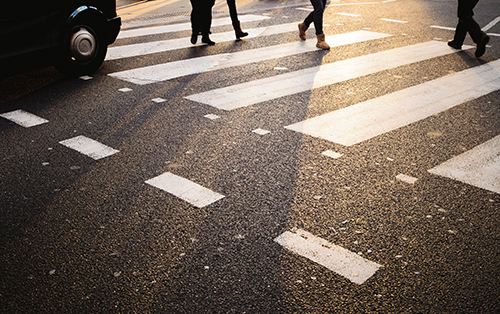
Somerville has seen at least two fatal pedestrian crosswalk crashes during 2019. The news media has reported both were hit-and-run crashes.
A driver was tragically killed in a Somerville crosswalk over the weekend. The victim was struck on Saturday night around 8 p.m. as she crossed along Mystic Avenue (Route 38), near McGrath Highway and Stop & Shop.
The victim, a Somerville resident, was transported from the scene and later pronounced dead at Massachusetts General Hospital (MGH). Meanwhile, Massachusetts State Police began investigating and searching for the driver, who had fled the scene. The 64-year-old Roxbury man turned himself in Sunday morning and was charged with leaving the scene of a crash causing personal injury or death and a crosswalk violation, according to WBZ Boston. He pleaded not guilty at arraignment today in Somerville District Court, where prosecutors revealed a few details about the crash. The driver admitted to drinking two glasses of wine at dinner before the crash and said he initially stopped because he suspected he had hit someone. He was allowed to remain free on $1,000 bail on the condition he refrain from alcohol. He is not allowed to drive.
According to StreetsBlog Mass, the crosswalk is located along Mystic Avenue. It provides pedestrians with access to the Kensington Underpass, which runs under I-93 and connects most of Somerville’s residential neighborhoods to businesses and offices in the Assembly Square district.
This is at least the second fatal pedestrian crosswalk accident in Somerville this year. Both were hit-and-run crashes. In February, a beloved 40-year-old educator was walking in a crosswalk at the Harden Road and Powderhouse Boulevard intersection. She was hit by a truck which never stopped and died from her injuries. Somerville Police had to launch a regional search. Days later, police found the 55-year-old Norwood driver, with help from a Tufts University police officer who spotted the truck parked on University Avenue in Medford. Still damaged, the truck was parked just a mile from the site of the pedestrian hit-and-run.
Tips for Driving Safely Near Pedestrians
Pedestrian accidents are often serious and life-threatening. You have probably heard this before, but drivers really can prevent most pedestrian injuries by slowing down and focusing on the road. Most people drive faster than they realize. According to AAA, when you adjust your speed from 25 mph to 35 mph, you double your risk for causing a fatal pedestrian accident.
Our safety tips for drivers:
- Travel the speed limit or lower when appropriate in neighborhoods and areas near stores and restaurants.
- Travel slowly through parking lots; never cut across parking lots or check cell phones.
- Always stop for pedestrians in a crosswalk.
- Take caution when driving at night.
- Older drivers should have regular vision exams and monitor their driving.
- Watch fatigue.
- Use GPS before you start driving.
- Do not use your cell phone for any reason. Even hands-free technology can be a distraction, especially during the summer months and for night driving.
- Never operate a motor vehicle while intoxicated or while under the influence of marijuana.
- Put down drinks and food.
- Talk to your family. If anyone is ever in an unimaginable situation and has hit a pedestrian or bicyclist, tell them to stop, call police and wait at the scene.
- Leaving the scene is against the law in Massachusetts. If the driver leaves the scene, the victim may not get the medical care they need to survive. Minutes and seconds matter.
Beyond preventing injury, it’s in your best interest to slow down if you don’t want a ticket. More than 40 Massachusetts communities have now established slower, 25 mph default speed limits. Massachusetts sets a 30 mph default speed limit for communities. But under state Municipal Modernization Law passed in 2016, individual cities and towns can opt into a 25 mph speed limit instead in thickly settled areas and business districts. They can also create 20 mph work safety zones. Communities cannot alter speed limits on state roads.
Next time you enter one of these communities, watch for the speed limit signs as you enter. Boston, Cambridge and Somerville are among the communities which have adopted the lower 25 mph speed limit. The City of Somerville implemented a 25 mph speed limit citywide as soon as the state law took effect back in 2016. It also pursued 20 mph limits in work safety zones.
Breakstone, White & Gluck – Free Legal Consultation
Breakstone, White & Gluck is known for our extensive experience handling personal injury cases and our superb results for those injured and their families throughout Massachusetts. We invite you to learn about our results after pedestrian crashes.
Our Boston personal injury attorneys specialize in representing those injured in pedestrian accidents involving crosswalks and other pedestrian car accidents. If you have been injured, it is critical to learn your legal rights for seeking compensation and learn about the process ahead. For a free legal consultation, contact Breakstone, White & Gluck at 800-379-1244 or 617-723-7676 or use our contact form.
Car Dealers Pushing States to Allow Sales of Recalled Used Cars With “Disclosure”
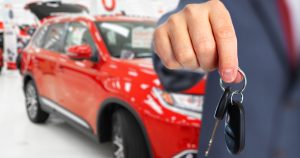
A dangerous bill has been filed in Massachusetts seeking to give used car dealers the right to sell used cars with pending recalls. Dealers would just have to provide written disclosure. Safety groups are opposed here and in other states.
The automotive industry has been pushing states to pass legislation allowing car dealers to sell used cars with open safety recalls. The industry wants to just disclose the pending recalls, rather than provide repair. Proposed legislation was the subject of a hearing at the Massachusetts State House this week. Massachusetts is the 11th state where this unsafe and anti-consumer legislation has been introduced over the past five years. Most other states have not passed the measures pushed by car dealers.
MassPIRG represented a coalition of safety organizations before the State House Joint Committee on Monday, speaking out against the bill, SB 179/HB 262, An Act further regulating business practices between motor vehicle dealers, manufacturers, and distributors. The bill was filed by Rep. Daniel J. Hunt and Sen. Marc R. Pacheco.
If approved, this proposal would allow Massachusetts car dealers to sell used cars under recall and simply provide written disclosure about outstanding repairs and defects, according to MassPIRG.
MassPIRG and its coalition strongly oppose this legislation, calling it a “serious threat to the safety of everyone who shares the roads,” and a “dangerous, profoundly anti-consumer, anti-safety, special interest bill.” It further noted there is no other recalled product that can be legally sold. You can read the coalition’s full statement here.
The proposal would weaken some of the most fundamental Massachusetts laws designed to protect consumers. Under the current laws, car dealers must affirmatively warrant that used cars are safe to operate on the roads. Dealers can be held liable for failing to comply with common law duty of care and for engaging in acts which are unfair, deceptive or negligent and result in wrongful death. Consumers have the right to recover financial losses in court or file a civil lawsuit in cases involving personal injury or wrongful death.
The Role of the Automotive Lobbying Groups
The Center for Public Integrity has teamed up with USA Today and The Arizona Republic to cover the lobbying effort by the automotive industry in the wake of the massive auto recalls. There are a number of industry groups, but the media partners report the Automotive Trade Association Executives has drafted “suggested” legislation being provided to many states. The Washington D.C.-based organization represents more than 100 executives from the regional auto dealer associations.
The media partners reported the goal was for the legislation to have two parts: one requiring manufacturers to fairly compensate auto dealers for holding onto used cars which needed repairs. The second part would allow those same auto dealers to sell recalled used cars if they disclosed repairs were needed.
Reporting on the Many Injuries
Over the last decade, drivers have suffered through recall after recall – over 280 million vehicles overall, according to the Consumer Federation of America. While many repairs have been made, the group estimates over 70 million recalled vehicles remain on the road.
As part of their coverage, the media partners have covered the stories of cars being sold multiple times after recalls and the injuries that follow.
The stories include that of Carlos Solis, a 35-year-old Texas father of two killed by a defective airbag in his Honda Accord. Solis was hit by an oncoming car as he waited to make a turn into an apartment complex outside of Houston. While his passenger was left uninjured and the vehicle suffered little exterior damage, Solis was struck in the neck by metal from the airbag. It severed his carotid artery and he died within minutes.
Solis had no warning about the defective airbag. An independent used car dealer sold the car without fixing the airbags or warning him Honda had recalled the vehicle years earlier. His family filed a civil lawsuit. Across the country, other families who lost loved ones did the same. Car dealers took notice.
Tennessee’s “Used Recall” Law
According to the media partners, legislation has been introduced in Massachusetts and 10 other states, including California, Illinois, Maryland, Missouri, New Jersey, New York, Oregon and Pennsylvania, Tennessee and Virginia.
Tennessee is one state which passed the law with the car dealers’ language intact. What happened there shows the automotive industry is reaching too far, disregarding potential injuries and deaths and harming families already in pain.
In 2014, Lara Gass, 27, died in a car crash caused by a faulty ignition switch in a Saturn Ion. GM had just recalled the safety defect a few weeks earlier. Her parents approached the local state legislator, asking him to introduce “Lara’s Law,” which would have banned the sale of recalled used cars.
The state lawmaker consulted with a local lobbyist from the Tennessee Automotive Association. They edited the language, removing the sales ban. Instead, they added a requirement to disclose the auto recalls to consumers.
The Gass family stopped supporting the bill. The local lawmaker – who had received $56,000 in campaign donations from local dealers – withdrew the bill. But that wasn’t the end of it. The next year, the same lawmaker reintroduced the legislation in the state Senate with the sales ban sought by the Gass family. Another legislator introduced an identical bill in the state House. Since these were identical bills, there would potentially be little to reconcile before committees.
Neither bill moved forward, but the second lawmaker ended up helping the auto dealers add the “disclosure” language to an unrelated law regulating, of all things, rickshaws. There was no sales ban as the Gass family had sought. Republican Gov. Bill Haslam signed “The Motor Vehicle Recall and Disclosure Law” on May 5, 2017.
“Lawmakers were more influenced by lobbyists than they were by citizens trying to do the right thing,” Jay Gass told the media outlets.
The one exception in the Tennessee law is car dealers cannot sell used recalled cars with special notices, including “do-not-drive recalls” or “stop-sale orders.” But these are very rarely issued.
Federal Legislation May Be Ahead
Hopefully, no other state will have to consider this type of anti-consumer legislation. Last month, U.S. Sen. Edward Markey (D-Massachusetts) and U.S. Sen. Richard Blumenthal (D-Connecticut) introduced federal legislation that would ban all sales, leases and loans of used cars with open recall notices. This would be a uniform law protecting car buyers, drivers and road users under one standard in all 50 states.
Boston Product Liability Lawyers – Boston Car Accident Lawyers
With more than 100 years combined experience, Breakstone, White & Gluck and our Boston personal injury lawyers are experts in handling product liability cases involving defective parts in cars and trucks. We represent clients in all types of product liability cases, including those involving defective construction equipment, fitness equipment, toys and consumer products. Our attorneys provide plaintiff’s representation in Boston, Cambridge and across Massachusetts.
If you have been injured, learn your legal rights. For a free consultation, contact our attorneys at 800-379-1244 or 617-723-7676 or use our contact form.
Motorcyclists Face High Risks for Injury and Death in Truck Crashes
It was painful to learn of the New Hampshire truck crash which killed seven motorcyclists and injured three others last weekend. That one crash could injure so many is heart-breaking and we send our deepest condolences to the families.
The horrific accident happened Friday night in the community of Randolph, New Hampshire. The motorcyclists belonged to the Jarheads MC, a motorcycle club for Marine Corps veterans and close friends, according to The Boston Globe. The group was reportedly traveling to their annual meeting eastbound on Route 2 when they were struck by the truck traveling west. Reports said the truck crossed the double yellow line.
By Monday, the driver – a 23-year-old Springfield, Mass. man – had been charged with seven counts of negligent homicide in the case. Massachusetts State Police took Volodoymyr Zhukovskyy into custody at his home. He was then taken to Springfield District Court, where he waived extradition to New Hampshire.
New Hampshire authorities are still investigating the cause of the crash, but there are questions about whether Zhukovskyy should have been driving at all following his arrests on OUI charges last month and back in 2013, according to news reports. Meanwhile, his employer, Springfield-based Westport Transport is said to be cooperating with police.
While this type of collision causing so many injuries is rare, motorcycle crashes are not, especially during the summer in New England. Per mile, motorcyclists are 28 times more likely than passenger car occupants to die in a crash, according to the Insurance Information Institute. In fact, Massachusetts authorities report they have responded to four fatal motorcycle crashes between Saturday night and Monday morning.
Some of the crashes involved a single motorcyclist. This was the case in New Bedford, Belchertown and Andover. But in Westport, a preliminary investigation shows the motorcyclist was traveling westbound on Route 177 when there was a collision with a Ford Ranger turning onto Tickle Road. The driver of the Ford Ranger stayed on the scene and was said to be cooperating with police.
In addition to local authorities, motorcycle accidents should be investigated by an experienced motorcycle crash attorney. In some cases, another driver may not appear to be involved. But drivers who speed, stop short, pass a motorcycle illegally or fail to check their blindspot cause motorcyclists to crash all the time. These are known as no-contact crashes.
When trucks hit motorcyclists, injuries can be more severe as we saw in New Hampshire. Truck companies have a responsibility to train drivers how to operate near motorcyclists. Truck drivers must also take care to properly load vehicles, especially if they are carrying equipment and materials on open open trailers.
At Breakstone, White & Gluck, we urge drivers to observe the following:
- Motorcyclists have the right to operate on the same roads as drivers and must follow the same traffic laws and signals.
- Provide motorcyclists room. Travel several car lengths behind motorcyclists.
- Motorcyclists are permitted to ride two abreast in a lane in Massachusetts and New Hampshire. (Source: The Massachusetts Motorcycle Manual and AmericanMotorcyclist.com).
- Motorcyclist are not permitted to travel between traffic lanes (or split lanes).
- Accidents can happen when drivers fail to look before they turn. In fact, this was the cause of 44 percent of all motorcycle crashes in 2013, according to esurance.com.
- Attempt to make eye contact with motorcyclists at intersections. Many motorcyclists do not have self-canceling turn signals like car and you cannot trust a motorcyclist will turn until you see it.
- Check your mirrors and blindspots often.
- Some drivers have trouble driving in the rain. Expect the same from motorcyclists. Be patient and give them more room.
- Do not speed through traffic lights or make quick unexpected movements at traffic lights and intersections.
- Do not speed on any roads.
- Do not overload trucks and trailers. Secure equipment and materials behind a closed door or under secure ratchet straps, bungee tarp straps or other appropriate equipment.
- Do not attempt to pass motorcyclists unless you must. While you are allowed to do so in Massachusetts, the motorcyclist may not be expecting the move and surprises can lead to accidents and falls.
- Never drive when you are tired; do not drive when you are normally sleeping or getting ready for bed.
- Never drink and drive.
- Remove all distractions from your car, including cell phones. Hold heavy conversation and limit snacks and drinks.
Massachusetts Motorcycle Safety Tips
If you are a motorcyclist, please read our past blog, “Massachusetts Motorcycle Safety Tips.” The article can be a resource if you are just starting to ride, looking to become licensed or have questions about your Massachusetts auto insurance policy.
About Breakstone, White & Gluck
The Boston car accident lawyers at Breakstone, White & Gluck specialize in representing those injured in motorcycle accidents caused by the negligence of other drivers. If you or a loved one has been injured, learn your legal rights for seeking compensation. For a free legal consultation, contact us at 800-379-1244 or 617-723-7676 or use our contact form.
Study: Teen Crashes Cause Nearly 20 Percent More Deaths On Summer Days
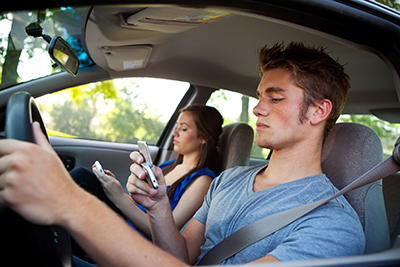
A recent study shows teen drivers are more likely to cause crashes resulting in injury or death during the summer months.
When your teen driver picks up the keys, you may casually say, “Have fun and be safe.” But this is when your worry sets in.
In this blog, Breakstone, White & Gluck reports on the latest research on teen drivers along with essential safety fundamentals to share with your family. Our partners each have more than 35 years of experience representing those who have been injured by negligent drivers in Boston, Cambridge and across Massachusetts. To avoid these tragedies, we encourage parents to play an even more proactive role to encourage safety during the summer months.
AAA Foundation for Traffic Safety “100 Deadliest Days” Study
A new study reports two-thirds of people injured or killed in car crashes involve a teen driver. The AAA Foundation for Traffic Safety released this figure as part of its “100 Deadliest Days” report on the period from Memorial Day to Labor Day. During the past five years, nearly 3,500 people have been killed in crashes caused by teens during the summer months, according to AAA.
More than a quarter of the teen driving crashes were caused by speeding. Teens who were drinking and driving caused 17 percent of the deadly collisions while distracted driving behaviors caused 9 percent of the deaths.
Other findings:
- Teen drivers, age 15-18, are 17 percent more likely to cause a fatal car crash in the summer than other times of the year.
- The legal age for consuming alcohol is 21 years old in every state. Yet 1 in 6 teens involved in fatal summer crashes tested positive for alcohol.
- More than 52 percent of teens participating in AAA’s research reported they had read a text message or email while driving in the past 30 days. Another 40 percent admitted to sending one.
- As part of its research, AAA used in-vehicle dash cameras and found 58 percent of teens who caused a crash were engaged in distracted behaviors. This was four times as high as federal estimates.
Other research goes deeper, showing teen drivers crash nearly 4 times as often per mile as drivers age 20 and up (Insurance Institute of Highway Safety.) The younger the driver, the more likely they are to crash due to inexperience or risky behaviors. Even a couple years can make a significant difference. For instance, the crash rate for 16-year-old drivers is 1.5 times as great as for 18- and 19-year-olds.
A few tips for your family:
Teen driving agreement. If you have never done so, now is a good time to have your child sign a teen driving agreement. Don’t just get a signature. Ask your teen to read each point out loud and ask if they understand or have any questions.
Massachusetts Junior Operator Law. Remind your teen that they have additional restrictions under the state’s junior operator law. If they violate the law, they may be cited and the infraction will go on their driving record. There is nothing you can do to help them at that point unless you plan to hire a criminal defense lawyer and attempt to challenge the citation.
For the first six months, drivers age 16 ½ to 18 cannot carry passengers under the age of 18, except for family members. The law also bans junior operators from driving between the hours of midnight and 5 a.m. and cell phone use is not allowed for any reason. There are additional consequences for driving under the influence of alcohol, speeding or drag racing.
Drinking and Driving. Explain to your teen that there is a zero tolerance policy for drinking and driving in your home. Encourage them to avoid parties where there are a large number of teens or where teens may be drinking.
At the same time, they should never get in the car with a friend who has been drinking and you will do everything you can to help them get home safely in situations involving alcohol. Come up with an emergency plan together now before there is a crisis situation.
Drive with your teen. Ask your teen to tag along when you go to the grocery store or mall. Show them how you handle the parking lot or the busy intersection where you need to watch for cyclists and pedestrians. Talk through some of the steps out loud. Then, give them the wheel on the way home.
Set a good example. Do not heavily consume alcohol and never drive if you do. Put your cell phone in the back seat when you drive. If your teen calls, say, “I was driving and couldn’t talk.” If you use a hands-free driving device, consider limiting use while your teen gets started on the road.
About Breakstone, White & Gluck
At Breakstone, White & Gluck, our Boston car accident lawyers have over 100 years combined experience. Our lawyers are committed to providing aggressive representation and obtaining the best possible financial results for clients – in every case. We represent clients injured by car crashes and in truck accidents in Boston, Cambridge, Somerville and across Massachusetts.
For a free legal consultation, contact us at 800-379-1244 or 617-723-7676 or use our contact form.
Massachusetts Tries Again at Passing Hands-Free Driving Law
Hands-free legislation has taken a step forward in Massachusetts this year. So have the studies and research showing the dangers cell phones bring to the roads.
 Eight years ago, Massachusetts banned texting while driving. Since that time, lawmakers have considered several proposals to ban drivers from using hand-held cell phones, with a goal of reducing distracted driving injuries and fatalities. On May 15, 2019, the Massachusetts House of Representatives overwhelmingly supported another proposal with a 155-2 vote. As many watch, the state Senate now plans to discuss the legislation in early June. Watch with caution though. The Senate has already approved hands-free driving bills during each of the last two sessions, according to the State House News Service.
Eight years ago, Massachusetts banned texting while driving. Since that time, lawmakers have considered several proposals to ban drivers from using hand-held cell phones, with a goal of reducing distracted driving injuries and fatalities. On May 15, 2019, the Massachusetts House of Representatives overwhelmingly supported another proposal with a 155-2 vote. As many watch, the state Senate now plans to discuss the legislation in early June. Watch with caution though. The Senate has already approved hands-free driving bills during each of the last two sessions, according to the State House News Service.
Under the House bill (H 3793), drivers would not be able to use hand-held cell phones. If they want to talk, drivers will have to use hands-free technology such as a Bluetooth device and keep their hands away from their phones. The primary exception is drivers can make a single tap or swipe to activate the device’s hands-free mode. There is another limited exception for public safety personnel and drivers in certain emergency situations.
What about GPS? Drivers can continue to use GPS devices which are mounted onto their vehicle’s dashboard, but these must not impede operation.
Fines for violations would start at $100 for first-time offenders. There would be a $250 fine for a second offense and a $500 fine for third and subsequent offenses. The bill would take effect 90 days after passage, but drivers will receive warnings instead of fines for violations up until Dec. 31, 2019.
In addition to approving hands-free legislation, the House bill would also require an annual review of the race and demographic information for drivers who are issued traffic citations. While Massachusetts already collects this data, lawmakers say there needs to be a consistent and regular review.
Distracted Driving Increases Near Emergency Responders
As we wait for legislators to vote, we want to share a few recent studies on distracted driving.
In April, the National Safety Council (NSC) released an alarming and upsetting report on a dangerous trend: drivers using cell phones near emergency responders.
All 50 states have “move over” laws which require drivers to clear the way and give emergency responders space to work. The Massachusetts “Move Over Law” took effect in 2009 and protects the work area for police officers, firefighters, paramedics, tow truck drivers and all roadside emergency and maintenance professionals.
Despite these laws, the NSC reports 71 percent of drivers surveyed said they take photos and video when they see an emergency vehicle on the side of the road. While passing by, they film fires, car crashes and even routine traffic stops.
Drivers are doing more than capturing the scene. Sixty percent are also posting footage to social media. Another 66 percent are providing someone with an update by e-mail.
There is a tragic cost to this cell phone use. About 16 percent of drivers surveyed said they have actually hit a first responder or were involved in a near-crash. And despite their actions, nearly 90 percent agree: their cell phone use puts emergency responders in harm’s way.
This problem doesn’t go away once the ambulance or police car drives away. On a normal day, when emergency responders are not on the scene, 24 percent of the drivers admit they still snap pictures and record video. Another 29 percent of drivers say they engage with social media and 24 percent say send e-mails.
AAA Foundation for Driver Safety Reports on Teen Driving, Cell Phone Use
Another study comes from the AAA Foundation for Traffic Safety and reports on the risk teen drivers bring to the roads, including when they use cell phones.
The study focused on drivers between the ages of 15 and 18, including those with learner’s permits, restricted licenses (often called junior operator licenses) and full licenses. The study reports teens are a vulnerable driving group because of their inexperience and they need education into the potential consequences of cell phone use, speeding and other reckless behavior. AAA released the study to raise awareness between Memorial Day and Labor Day, often known as the “100 Deadliest Days.”
The study reported that teen drivers killed nearly 3,500 people from 2013 to 2017. Cell phone use contributes to these car accidents. Some 52 percent of teens said they had read a text message or sent an e-mail while driving, according to the AAA study.
AAA noted police often struggle to determine if texting caused a car crash, but that the study’s researchers made use of in-vehicle dash cameras. With these tools, AAA found 58 percent of teen crashes were the result of distractions, including texting and reading text from a cell phone.
About Breakstone, White & Gluck
Breakstone, White & Gluck of Boston specializes in representing those who have been injured by the negligence and wrongdoing of others. With more than 100 years combined experience, our personal injury attorneys represent clients in matters involving catastrophic injuries, car accidents, bicycle accidents, medical malpractice, head injuries and wrongful death.
For a free legal consultation, contact us toll-free at 800-379-1244 or 617-723-7676. You can also use our contact form.
Lynnway Auto Auction and Company President Facing Manslaughter Charges in 2017 Crash Killing 5 People
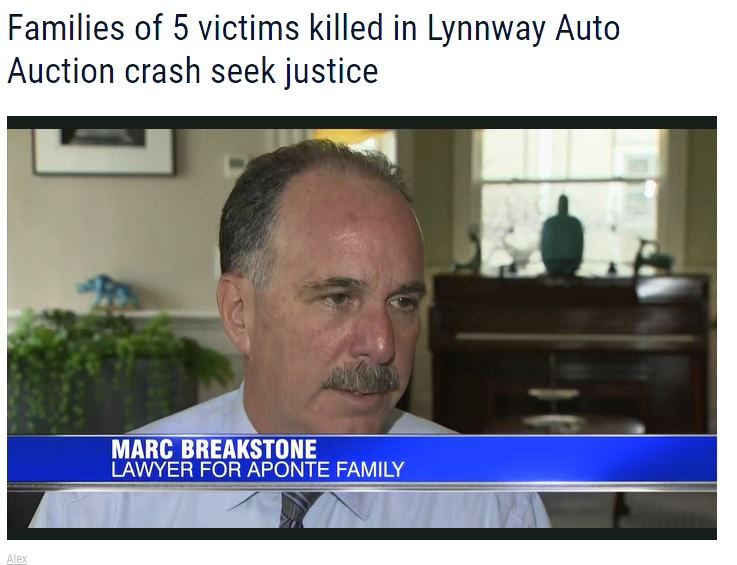
Attorney Marc L. Breakstone, who is representing a family who lost a loved one in the Lynnway Auto Auction crash, speaks to WHDH TV in Boston. Watch.
Attorney Marc L. Breakstone was interviewed by WHDH TV yesterday, following the announcement that the Lynnway Auto Auction, Inc. and company president James Lamb will each face five counts of manslaughter in the 2017 crash killing five people. Breakstone is representing one of the families who lost a loved one.
“This goes beyond normal everyday negligence,” he said. “This was gross negligence that created a dangerous environment for employees and others at the auction.”
Watch the interview on the WHDH website.
City of Boston Pursues 20 MPH Speed Limit to Reduce Traffic Fatalities and Pedestrian Injuries

In Boston, city officials are interested in lowering speed limits to 20 mph in neighborhoods to reduce traffic fatalities. The proposal comes just two years after the city lowered speeds from 30 to 25 mph and will require state approval.
First, the City of Boston dropped speed limits to 25 mph, with a goal of reducing traffic fatalities and pedestrian injuries. Now, Mayor Marty Walsh and the Boston City Council have their eyes on 20 mph on neighborhood streets. The next step is obtaining state approval.
The City of Boston first sought to lower speed limits as part of its VisionZero campaign a few years ago. That proposal also required approval from the state Legislature and Gov. Baker’s signature.
Gov. Baker signed the Municipal Modernization Bill into law in 2016, including language that allowed cities and towns to lower the default speed limit from 30 to 25 mph. Cities and towns can now lower speed limits on all (or select) municipal roads in thickly settled areas or business districts. Many communities have done so, including Boston, Cambridge, Quincy, Arlington and Dedham. Now, unless traffic signs are posted otherwise, it’s 25 mph in these communities.
While the speed limit in these communities has dropped, the fines remain the same. In Massachusetts, speeding carries a $105 fine for speeding. If you exceed the speed limit by 10 mph, there is an extra $10 fine per each mile per hour.
Boston was the first to approve lower speeds, with this taking effect in January 2017. But the City of Boston’s goal was always 20 mph and remains so for city neighborhoods. In fact, the Boston City Council approved a 20 mph speed limit back in 2016.
As the City of Boston pursues a 20 mph speed limit for neighborhoods, there is early data showing that the 30 to 25 mph drop has changed traffic patterns for the better. According to an Insurance Institute for Highway Safety study, after the lower speed limit took effect, Boston saw a 29 percent reduction in traffic traveling over 35 mph.
Mayor Walsh also announced other transportation initiatives last week, including the creation of special drop-off and pick-up sites for Uber, Lyft and other ridesharing vehicles. Data from the Massachusetts Department of Public Utilities confirms that Boston is the truly the hub of ride-hail services. During 2017, nearly 35 million rideshare trips began in the city. Boston saw more than 6 times as many rideshare starts as Cambridge, which has the second largest presences in Massachusetts.
Walsh’s other proposal is to give every student in the Boston public school system a MBTA pass. The price tag hasn’t been negotiated yet with the MBTA. Currently, the city receives a subsidy from the MBTA and pays $5.6 million for MBTA passes for students in Grade 7 and 8 who live more than a mile and a half from their schools.
Data That Supports 20 MPH
- According to the VisionZero Network, 9 out of 10 pedestrians who are hit by a vehicle traveling 20 mph survive. Increase the speed to 30 mph and the survival rate drops to 50 percent. At 40 mph, just 10 percent of pedestrians survive.
- Speed is a factor in nearly one-third of all traffic deaths in the U.S. (Source: VisionZero Network).
- Speeding crashes claimed the lives of 59,374 people on U.S. roads from 2010 to 2015 (Source: VisionZero Network).
- Cars speeding through red lights are a leading cause of urban car crashes, according to the Insurance Institute for Highway Safety. Some states and local communities permit use of red light and speeding cameras to improve enforcement. But many do not, including Massachusetts and our neighboring New England states. Rhode Island is the one exception, allowing red light cameras by state law and city ordinance. State law permits use of speeding cameras in school zones on weekdays.
Related:
Walsh to propose 20 mph limit in neighborhoods and new Uber, Lyft pickup sites, Boston Globe, March 7, 2019
Slow Down! Boston, Cambridge and Other Cities Have Dropped Speeds to 25 MPH, Massachusetts Injury Lawyer Blog, May 23, 2017
Ignition Interlock Devices for First-Time Drunk Drivers is Back Before the Massachusetts Legislature

The Massachusetts Legislature is being asked to reconsider an ignition interlock law for first-time OUI offenders.
A proposal to expand use of ignition interlock devices for drunk drivers is back before the Massachusetts Legislature.
Gov. Charlie Baker and Lt. Gov. Karyn Polito’s transportation bill includes the proposal to mandate ignition interlocks for first-time convicted drunk drivers. Currently, Massachusetts drivers convicted for the first time may seek hardship licenses allowing them to travel for work and specific purposes. Baker and Polito’s proposal would also put ignition interlock devices in their vehicles for at least six months following conviction. The devices test whether drivers are under the influence and if so, prevents them from starting their vehicle.
In Massachusetts, it is illegal to operate a motor vehicle with a blood alcohol concentration of .08 or higher, under M.G.L. c.90 § 24. The limit is .02 for drivers under 21. If police suspect drivers are intoxicated, they can be stopped and given a breathalyzer test. Drivers charged with operating under the influence can face a loss or suspension of their Massachusetts driver’s license and fines. Alcohol education training is a requirement in Massachusetts.
In addition, drivers can be sentenced to serve jail time, which is more common for subsequent offenses or when their actions cause death or serious injury.
As for drivers with more than one drunk driving offense, Massachusetts law does require them to use ignition interlock devices for a period of two years. M.G.L. c.90 § 241/2.
MADD and safety advocates say this is too little. And it falls short of the National Highway Traffic Safety Administration’s recommendation, which calls on states to require first-time offenders to use the devices and establish a minimum length of time for use. Twenty nine states have done so, according to the National Conference of State Legislatures.
Drunk driving continues to be a serious problem, killing almost 30 people daily across the U.S. (Source: NHTSA). Meanwhile, the state of Massachusetts reports about 150 people are being killed by drunk drivers each year. These drivers have a blood alcohol concentration of .01 and higher. Eighty percent of the deaths were caused by drivers operating with a blood alcohol concentration of .08 or higher.
Massachusetts Law: Drunk Drivers and Other Responsible Parties in Liquor Liability and Drunk Driving Injury Cases
In Massachusetts, when drunk driving leads to injury, a driver can be convicted of operating under the influence by the criminal courts.
Further, they can be held liable and have to pay monetary damages to the victim or multiple victims. Our Boston car crash attorneys have handled liquor liability cases for injury victims and their families for more than 25 years in Massachusetts. Our attorneys are experienced in investigating these crashes and identifying all the parties who may share responsibility. In addition to drunk drivers, commercial establishments such as bars and restaurants have a responsibility not to serve patrons who are already intoxicated. This area of law is known as dram shop liability.
Individuals also carry responsibility when minors consume alcohol at their homes under social host liability law. When someone provides alcohol to a minor – or their teenager does so – it’s a consequential offense in Massachusetts. A parent can be held liable and have to compensate the injured person or persons. Parents can also face criminal charges leading to fines and jail time.
About Breakstone, White & Gluck
Breakstone, White & Gluck is a Boston law firm specializing in representing individuals injured in car accidents, truck crashes and other collisions caused by negligent and reckless drivers. Our lawyers are experienced in representing drivers, pedestrians, cyclists and motorcyclists injured across Massachusetts, including in Boston, Cambridge, Somerville, Everett, Lynn, Newton and Waltham.
For a free legal consultation, contact our car accident lawyers at 800-379-1244 or 617-723-7676 or use our contact form.


